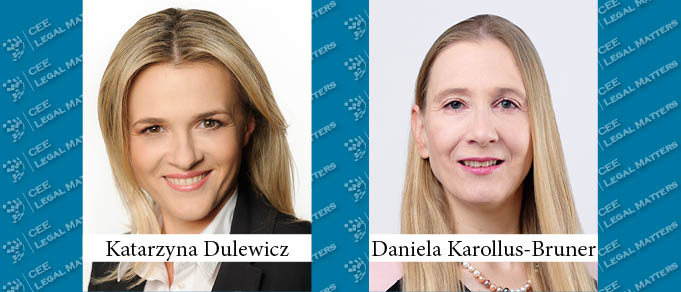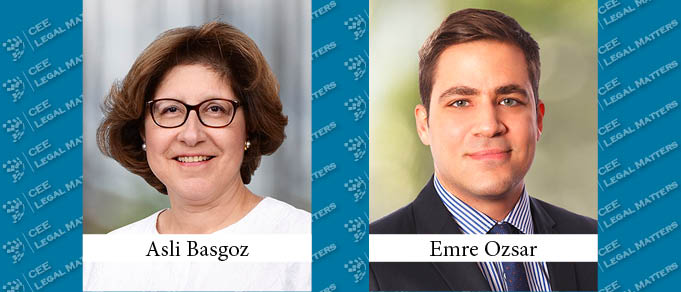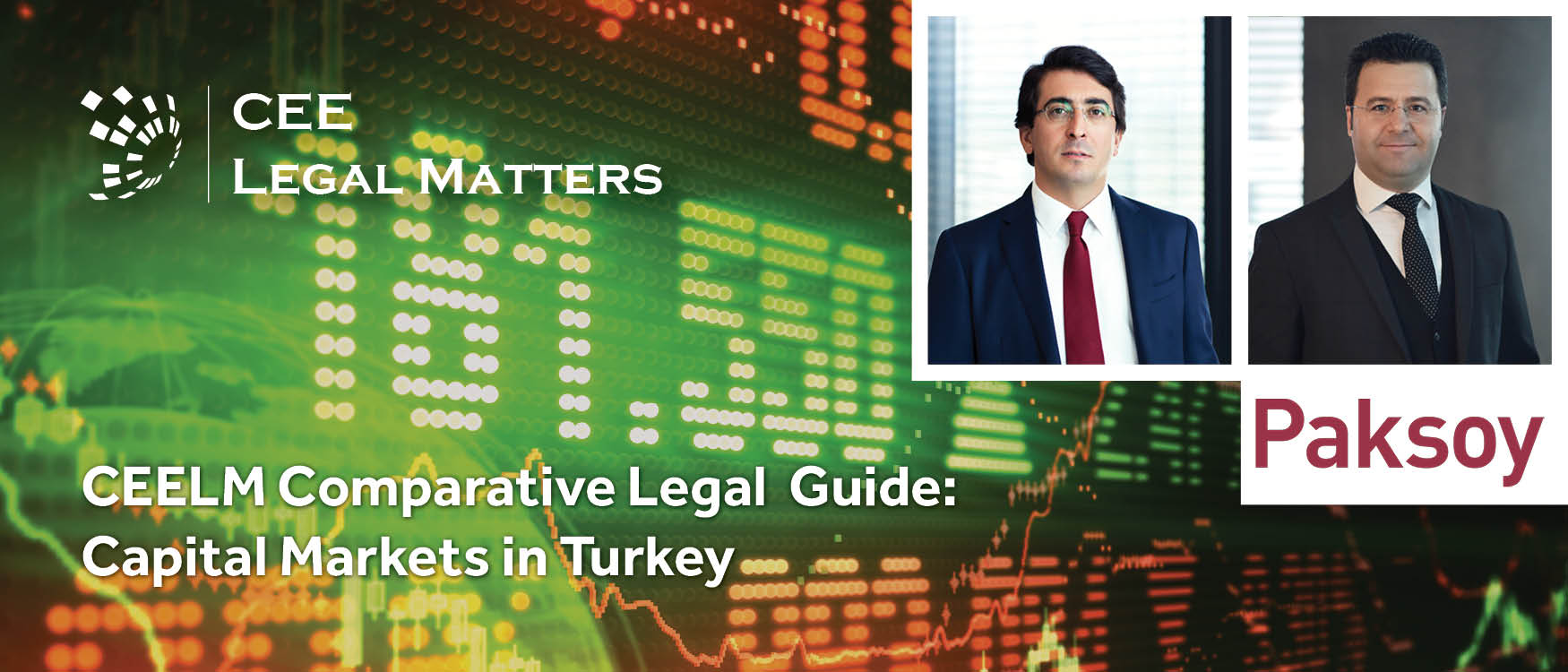The year started with expectations of growth and stability. Along came COVID-19, and the focus shifted to stability and survival. The Turkish banking sector, used to market turmoil, took proactive steps, and the authorities matched the effort.
Automatic Exchange of Information in Tax Matters
As national borders lose their importance when it comes to capital mobility, tax revenues have decreased significantly and tax avoidance has become a matter of common concern for countries. Therefore, exchange of information in tax matters has become one of the most important topics on the agenda of countries and international organizations in recent years.
A Review of Biometric Data Processing Systems Usage Under the Personal Data Protection Law and Secondary Legislation
Personal data, one of the most discussed topics in the legal world, is protected in many countries, and it is regulated in Turkey under the Personal Data Protection Law, number 6698 (the “Law”), and secondary legislation. In addition, the decisions of the Personal Data Protection Board established under the Law (the “Board”), provide insight on the rules applicable to data controllers and processors.
Turkish Capital Markets 2020 Overview
The Turkish capital markets have undergone many regulatory amendments and adjustments this year to provide a more robust environment in terms of transparency, competition, and stability for investors. As regulators have kept manipulative transactions in their sights to overcome the panic created by COVID-19, the Turkish Capital Markets Board (CMB) has imposed many sanctions and penalties.
M&A Deals During the COVID-19 Outbreak
COVID-19 has swiftly become a global outbreak, affecting not only people’s lives but also the global economic conjuncture. Like most countries, the Republic of Turkey, has adopted several measures to eliminate or lessen impacts of COVID-19 on the economy. With this article, we will provide an overview of the Turkish legal market and key legislation enacted during the COVID-19 outbreak.
Tiptoing in Turkey
A CEE Legal Matters special report on how international firms operate in Turkey – and the echoing silence that greets attempts to investigate.
Guest Editorial: Turkey’s New Normal
Are you still reading? Despite the title this is not a COVID-19 piece. Quite frankly we have had enough of that. We want life to go back to how it was – but it won’t. Something new is happening. People have been humbled by the effects of the C-word on their very existence. Everyone is suddenly more aware of the need to change – in Turkey, for example, we always kiss and hug upon meeting, and we are not used to the concept of social distancing at all. Now we stand a meter apart and elbow or fist bump – which still feels odd to me. We are aware and we are asking ourselves – “what needs to change? Was this our fault? What is biodiversity? What can we do?”
Rebuilding and Reshaping in the Aftermath of COVID-19
As Europe begins a tentative re-opening following several difficult months of quarantining, social distancing, and working-from-home, we spoke to CMS’s Warsaw-based Employment Partner Katarzyna Dulewicz and Vienna-based Dispute Resolution Partner Daniela Karollus-Bruner for their perspective on the process.
Turkey: “Force Majeure” Decision from Turkish Energy Market Regulatory Authority for Unlicensed Electricity Generation – Prolongation of Durations
Government institutions in Turkey are continuing to take various measures to mitigate the economic impact of the ongoing COVID-19 pandemic. At its meeting on April 2, 2020, the Energy Market Regulatory Authority (EMRA) adopted a new decision (the “Decision”) accepting the COVID-19 pandemic as a “force majeure” event under Article 35 of the Electricity Market Licensing Regulation (the “Licensing Regulation”) and Article 19 of the Regulation on Unlicensed Electricity Production in the Electricity Market (the “Unlicensed Regulation”). The decision was published in the Official Gazette on April 4, 2020.
Turkey: Save the Date for IYS Registration – Extended Deadline and Recent Updates on Commercial Electronic Message
In Turkey, a local and centralized commercial electronic communication management system (IYS) for obtaining, exercising, and tracking opt-in/opt-out requests as well as complaints from recipients of electronic commercial communications was established under the supervision of the Ministry of Trade, the competent authority, in line with recent amendments to the Regulation on Commercial Communication and Commercial Electronic Messages. Also, a company has been incorporated solely for the establishment and management of IYS on behalf of the institution authorized by the Ministry (IYSCo).
A Safe Bet: White & Case and GKC Partners Advise on Deal of the Year in Turkey
An interview with Asli Basgoz of White & Case and Emre Ozsar of GKC Partners about their firms’ work on the CEE 2019 Deal of the Year for Turkey: Sisal’s successful bid to operate the Turkish State Lottery.
Turkey: Authorization Process for Medicines in Turkey
Recently, the spread of COVID-19 has been classified as a “pandemic” by the World Health Organization. With the global contagion of the epidemic, rumors have appeared regarding the development of new medicines and vaccines in Turkey, as everywhere else, and this situation has caused much misleading news and information to be published by the media and on the Internet.
What Makes a Good Conference Great?
Love them or hate them, conferences are a fundamental part of the successful commercial lawyer’s calendar. But time is precious. Those calendars are full. It’s vital for conference organizers to get them right, and critical for lawyers to choose wisely in determining which events to attend and which to skip.
Guest Editorial: Notes from A Regional Legal Hub: Turkey
I can pinpoint the exact moment when my interest in the law first flourished: I was 13 years old and my mother had given me a book called The Courage of their Convictions by Peter H. Irons, about 16 Americans who had fought for their rights and taken their cases all the way to the Supreme Court, and what I read resonated deeply within me. It later turned out that my mother had only given me the book to improve my English. But it opened the door to so much more.
Critical Approaches to Mandatory Mediation in Turkey
Nowadays, alternative methods of dispute resolution, not involving the courts, are increasing. Since disputes are getting ever-more complicated, and general peace between parties is preferable, parties now prefer to solve disputes with more peaceful and flexible alternative dispute resolution methods instead of litigation – and judicial systems are encouraging parties to employ these methods. In this context, mediation has in recent years become the most preferred and fastest-growing alternative dispute resolution method.
Capital Markets in Turkey
Contributed by Paksoy.
CEELM Covid-19 Comparative Legal Guide: Contracts in Turkey
Contributed by Kolcuoglu Demirkan Kocakli
The GDPR’s Effects on the Transportation Sector
The GDPR, which canceled previous European data protection regulations, represents the biggest change in those regulations in 20 years. Naturally, this amendment affects the methods of obtaining and processing personal data regardless of the size and structure of the companies doing so. All institutions in the transportation sector, including land, sea, air, and rail operators, agencies, airlines, and municipalities are also subject to the GDPR’s requirements.










































